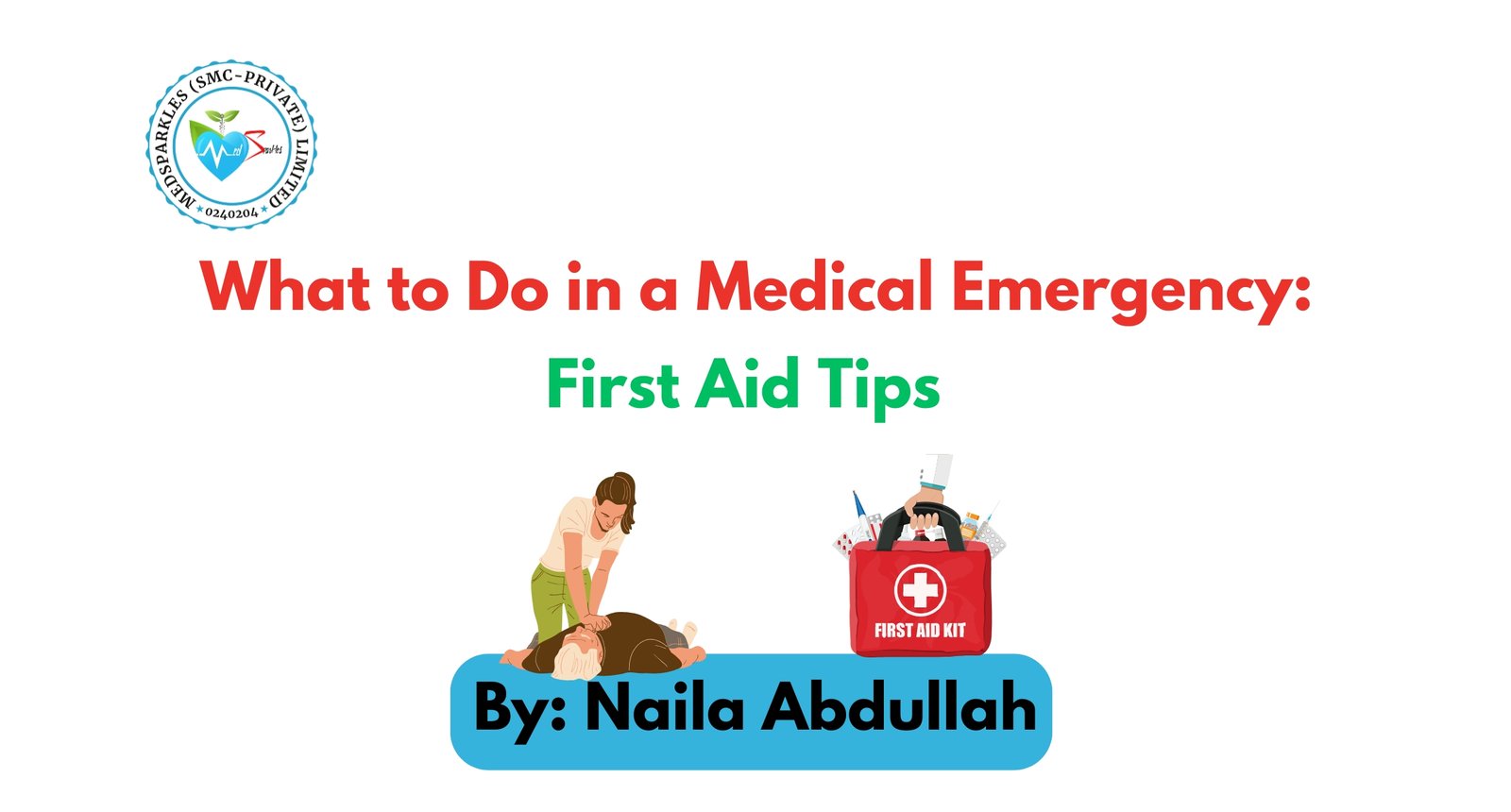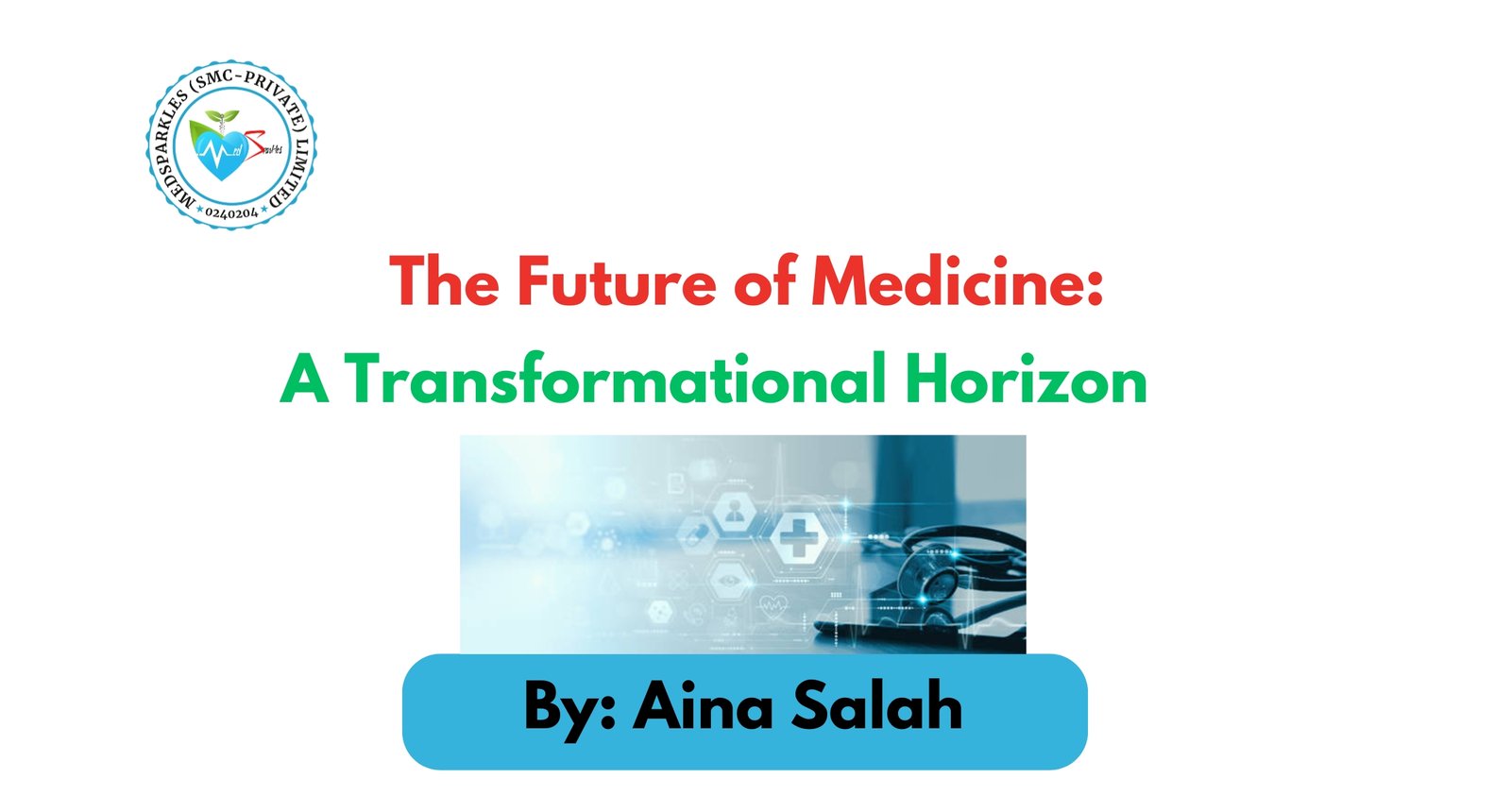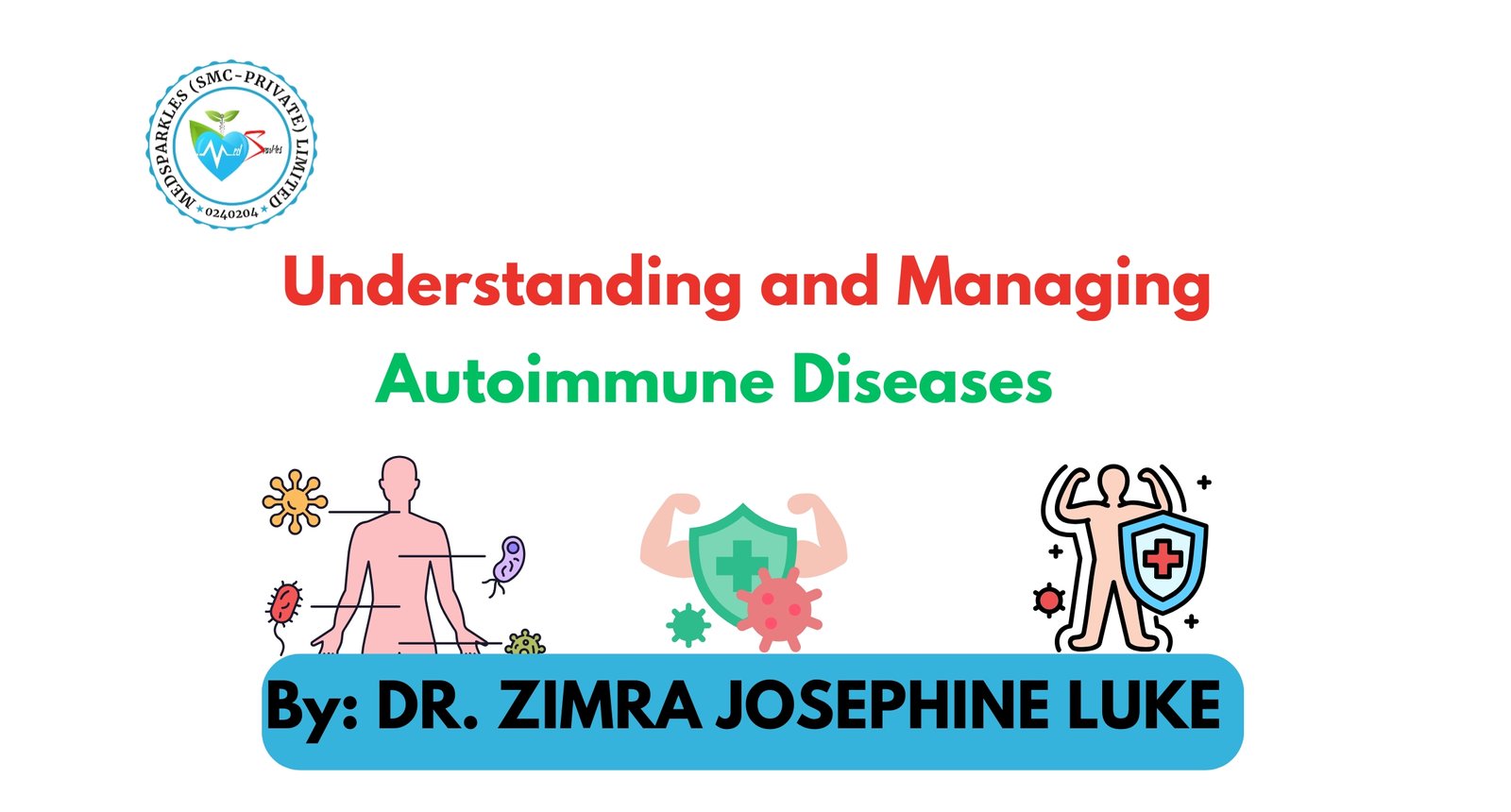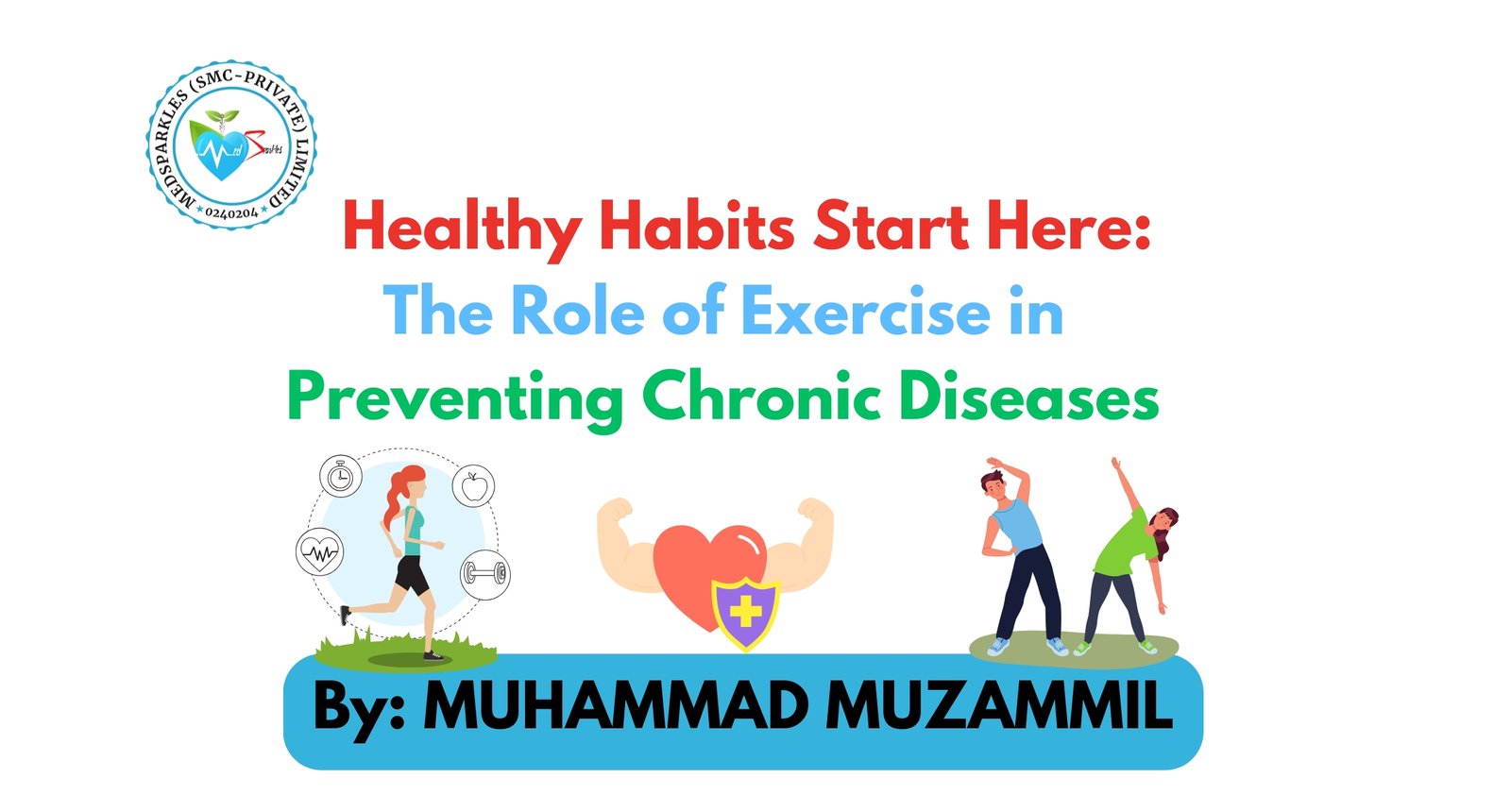
Ramadan is a sacred month for Muslims, but it can be tough for those with diabetes. Fasting from morning until evening can affect blood sugar levels, so it’s important for diabetics to be extra careful in managing their health.
Fasting for Ramadan can lead to ups and downs in blood sugar levels, which can heighten the risk of low blood sugar (hypoglycemia) and high blood sugar (hyperglycemia). Additionally, dehydration, changes in when medications are taken, and different eating schedules can make it tougher to manage diabetes.
Challenges of Fasting for People with Diabetes
- Hypoglycemia (Low Blood Sugar): Prolonged fasting can lead to dangerously low glucose levels, particularly in patients on insulin or sulfonylureas.
- Hyperglycemia (High Blood Sugar): Excessive food intake at Iftar (breaking fast) or inappropriate medication adjustments can lead to high blood sugar levels.
- Dehydration: Long fasting hours, especially in hot climates, can lead to dehydration, increasing the risk of diabetic ketoacidosis (DKA) in Type 1 diabetes.
- Diabetic Ketoacidosis (DKA): Due to prolonged fasting and inadequate insulin adjustments, Type 1 diabetic patients are at a higher risk of DKA.
- Thrombosis: Fasting may lead to blood thickening, increasing the risk of clot formation, particularly in individuals with uncontrolled diabetes.
Pharmacists are essential in helping people fast safely by offering education, adjusting medications, and giving dietary advice. Pharmacists play a special role in helping people with diabetes during Ramadan. Here are some ways they can help:
The Pharmacist’s Role in Ramadan Diabetes Management
- Pre-Ramadan Assessment:
- Encourage patients to consult their healthcare provider before Ramadan.
- Identify high-risk patients (Type 1 diabetes, uncontrolled Type 2 diabetes, history of DKA, etc.).
- Patient Education:
- Teach patients the signs of hypoglycemia and hyperglycemia.
- Advise on blood glucose monitoring, emphasizing the importance of checking glucose levels even during fasting.
- Educate patients about the necessity of breaking the fast if glucose levels become dangerously high or low.
- Medication Adjustments:
- Oral Hypoglycemic Agents:
- Metformin: Evening dose may need to be adjusted.
- Sulfonylureas: Risk of hypoglycemia; dose reduction or switch to DPP-4 inhibitors may be recommended.
- SGLT2 Inhibitors: Risk of dehydration and DKA; assess appropriateness before Ramadan.
- Insulin Therapy:
- Basal-bolus regimens may need adjustment in timing and dose.Switch from premixed insulin to basal-bolus regimens in some cases.
- Reduce basal insulin dose by 20-30% to prevent fasting hypoglycemia.
- Oral Hypoglycemic Agents:

4. Dietary and Hydration Guidance:
- Recommend slow-digesting foods for Suhoor (pre-dawn meal) such as whole grains, fiber-rich foods, and proteins.
- Advise against high-sugar, high-fat foods at Iftar to prevent postprandial hyperglycemia.
- Encourage adequate hydration between Iftar and Suhoor to prevent dehydration.
- 5. Monitoring and Emergency Planning:
- Advise frequent blood glucose monitoring, particularly before Suhoor, midday, and before Iftar.
- Educate patients on when to break the fast (e.g., glucose <70 mg/dL or >300 mg/dL).
- Encourage patients to carry glucose tablets or other emergency sugar sources.
Special Considerations
- Elderly Patients: Higher risk of dehydration and hypoglycemia; close monitoring is crucial.
- Pregnant Women with Gestational Diabetes: Fasting is generally not recommended; pharmacists should guide them based on medical advice.
- Patients on Complex Medication Regimens: Additional counseling may be required for those on multiple medications to ensure safe fasting.
Tips for Managing Diabetes during Ramadan
1. Consult with your healthcare provider before starting Ramadan to discuss any necessary adjustments to your diabetes management plan.
2. Monitor your blood glucose levels regularly, especially before and after fasting.
3. Stay hydrated by drinking plenty of water during non-fasting hours.
4. Eat balanced meals during non-fasting hours, focusing on whole, unprocessed foods.
5. Avoid excessive sugar and refined carbohydrates.
6. Stay physically active, but avoid strenuous exercise during fasting hours.
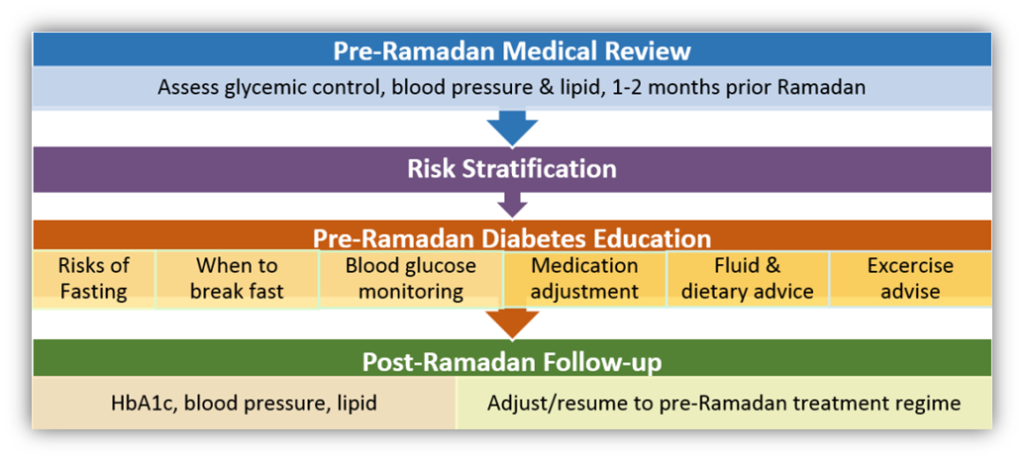
Conclusion
Managing diabetes during Ramadan requires careful planning, attention to detail, and a supportive healthcare team. Pharmacists play a vital role in helping individuals with diabetes navigate the challenges of fasting during Ramadan. By providing personalized education, counseling, and medication management, pharmacists can help individuals with diabetes stay safe and healthy during Ramadan.
Here are some frequently asked questions (FAQs) about Fasting & Diabetes:
- Can people with diabetes fast during Ramadan?
- It depends on their health status. Patients with well-controlled diabetes may fast with proper guidance, while those with uncontrolled diabetes, frequent hypoglycemia, or complications may be advised against fasting.
- How should diabetes medications be adjusted during Ramadan?
- Long-acting insulin or basal-bolus regimens may need dose adjustments. Sulfonylureas should be used cautiously due to the risk of hypoglycemia. Pharmacists help in modifying treatment plans according to fasting hours.
![*]() What are the warning signs that a patient should break their fast?
What are the warning signs that a patient should break their fast?
- Severe hypoglycemia (<70 mg/dL), hyperglycemia (>300 mg/dL), dehydration, dizziness, confusion, or loss of consciousness require immediate termination of fasting.
![*]() What role does a pharmacist play in diabetes management during Ramadan?
What role does a pharmacist play in diabetes management during Ramadan?
- Pharmacists educate patients on medication adjustments, monitor blood sugar levels, provide dietary advice, and ensure the safe use of antidiabetic medications while fasting.
![*]() What dietary advice should pharmacists provide to diabetic patients during Ramadan?
What dietary advice should pharmacists provide to diabetic patients during Ramadan?
- Encourage a balanced Suhoor (pre-dawn meal) with complex carbohydrates, fiber, and proteins to sustain energy levels. Advise breaking the fast with dates, water, and a protein-rich meal to avoid blood sugar spikes.
Useful References:
- https://idf.org/media/uploads/2024/08/DAR-guide-to-safe-fast-EN.pdf
- https://diabetesjournals.org/care/article/33/8/1895/39185/Recommendations-for-Management-of-Diabetes-During
- https://www.moh.gov.sa/en/HealthAwareness/EducationalContent/Diseases/diabetic/Pages/Diabetes-and-Ramadan-.aspx
- https://www.diabinfo.de/en/living-with-diabetes/diabetes-in-everyday-life/ramadan.html
- https://www.ncbi.nlm.nih.gov/books/NBK581875/


